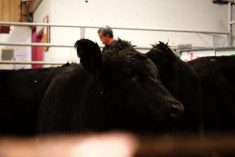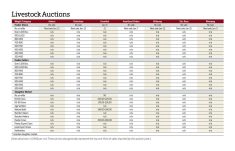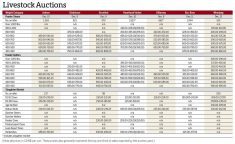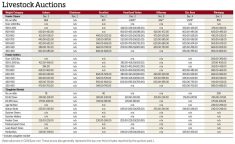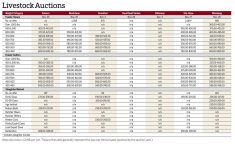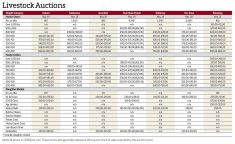Most cattle auction sites across Manitoba have slowed their operations as summer approaches. The cattle going through the rings during the week ended May 30 were left behind after the first cut was sold off months ago.
However, there are still some good finds on the slaughter market, according to Ashern Auction Mart general manager Kirk Kiesman.
“It’s mainly clean-up cattle now. With the high slaughter prices, I think they’re keeping the cows and bulls coming to town,” he said. “There are some that would’ve hit grass, but there’s no point. There are guys saying for what they’re worth right now, let’s bring them in.”
Read Also
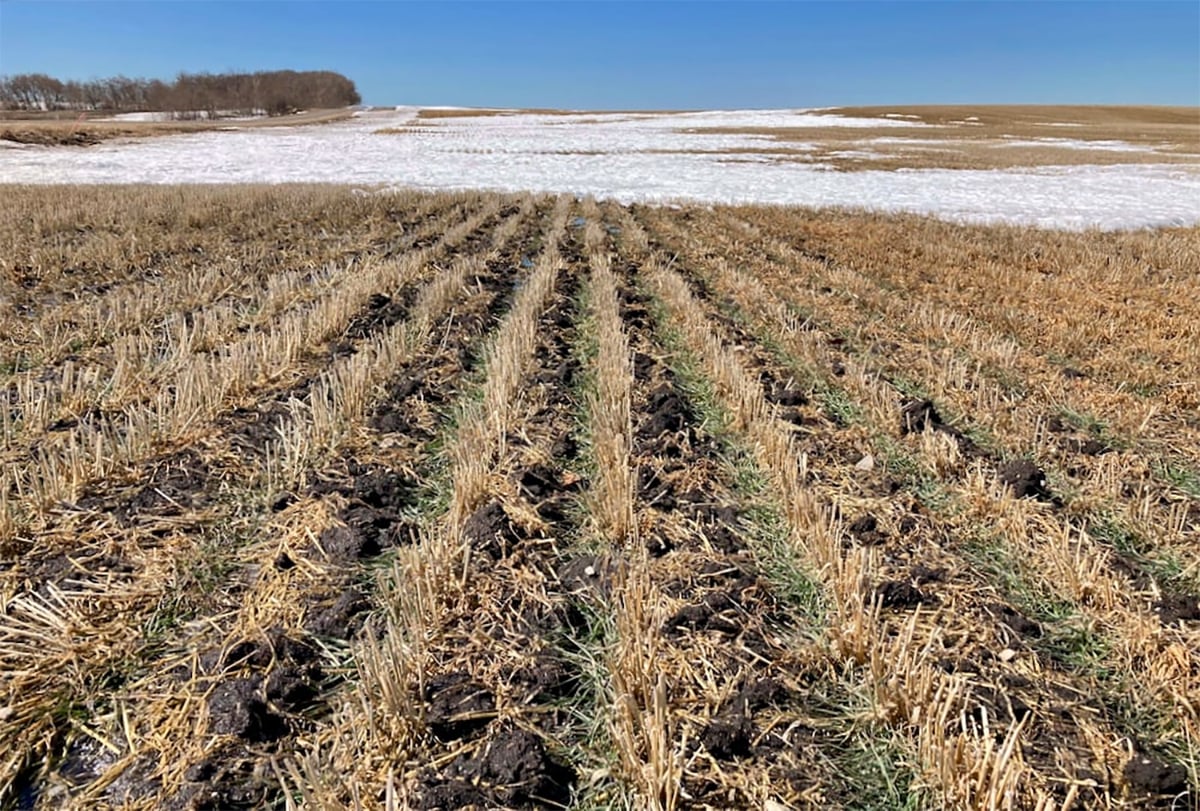
Winterkill threat minimal for Northern Hemisphere crops
The recent cold snap in North America has raised the possibility of winterkill damage in the U.S. Hard Red Winter and Soft Red Winter growing regions.
D1 and D2 cows ranged from $140 to $192 per hundredweight during the week, while D3 to D5 cows were sold for $125 to $170/cwt. Mature bulls ranged from $178 to $237/cwt. and heiferettes brought in $160 to $230/cwt.
“Cow and bulls are probably the highlight of everything right now,” Kiesman said. “The market on the cows was good. It may have softened a touch, but on the bulls, it definitely has not softened.”
He added that prices for quality feeders were strong, but plainer cattle were under pressure. A strike at the Cargill processing plant in Guelph, Ont., has not affected the destination of sold cattle for now.
August cattle contracts at the Chicago Mercantile Exchange suffered losses during the week ended May 30. The live cattle contract dropped US$1.30/cwt. to $179.775, while August feeders lost $2.375/cwt. to $259.075. Both contracts saw substantial declines on May 29, when meat processor JBS announced that China blocked beef imports from its plant in Greeley, Colo. China claimed it found feed additive ractopamine in the meat, which is banned in that country but not in the U.S.
Kiesman expects prices to be steady in the summer before rising in the fall.
“We’re going to have some good runs this fall and I think it’s going to be exciting for the cow-calf and feeder producer,” he said.
Statistics Canada released new data regarding farm income and farm cash receipts on May 29. Cash receipts for cattle totalled a record $13.541 billion in 2023, up 25.4 per cent from the previous year. Cash receipts for calves also jumped 32.2 per cent to $1.421 billion.
In the first quarter of 2024, cattle receipts were at $3.645 billion, compared to $3.026 billion one year earlier. For calves, receipts totaled $374.73 million, compared to $308.97 million in Q1 of 2023.
The average value per head of Canadian cattle, excluding calves, in 2023 was $2,534, up from $2,030 one year earlier. A calf was worth $1,113 on average compared to $760 in 2022.
Farm income from cattle was a record $35.68 billion across Canada in 2023, up from $28.48 billion in 2022. Calves brought in $4.629 billion in 2023, up from $3.484 billion in 2022.




